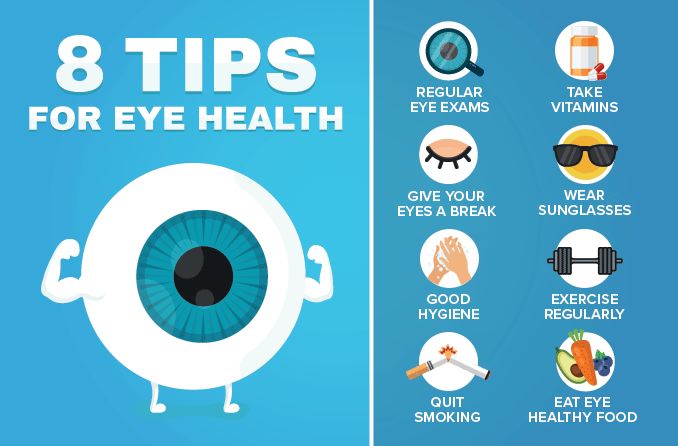Is Refractive Surgical Procedure Right for You? Elements to Take Into Consideration for Better Eyecare
In the realm of eye treatment, the decision to go through refractive surgical treatment is a crucial one that requires thoughtful consideration. From the complexities of one's ocular health to the intricacies of daily habits and personal assumptions, each aspect holds significance in the broader landscape of refractive surgical procedure candidateship.
Eye Health And Wellness Assessment
When thinking about refractive surgery, a comprehensive eye wellness examination is important to evaluate the suitability of the treatment for every individual. eye center andalusia. This examination involves a collection of exams and examinations conducted by an eye treatment expert to determine the general health of the eyes, the visibility of any type of hidden conditions, and the security of the refractive error
Throughout the examination, various aspects are taken into account, such as the person's case history, current eye prescription, corneal density, pupil dimension, and tear film top quality. These assessments aid to identify any type of contraindications to refractive surgery, such as corneal irregularities, cataracts, or untreated eye infections. Furthermore, the evaluation assists to take care of client assumptions regarding the prospective end results of the surgical treatment based upon their unique eye attributes.
Eventually, the eye wellness analysis is important in guaranteeing the security and performance of refractive surgical procedure, as it provides valuable insights into the individual's eye health and wellness condition and assists figure out one of the most appropriate therapy choices for attaining optimum aesthetic end results. (cardiologist andalusia)
Lifestyle Assessment
An extensive way of life evaluation is essential in figuring out the suitability of refractive surgical treatment for an individual's visual modification demands. Way of living variables such as occupation, pastimes, and everyday activities play a critical function in the decision-making procedure relating to refractive surgery. For example, individuals with professions that entail a high level of exercise or exposure to ecological aspects may have various visual needs contrasted to those with inactive desk work. Comprehending how an individual's way of life might affect their vision post-surgery is important for taking care of expectations and ensuring optimum outcomes.
Moreover, way of living practices such as sporting activities engagement, outdoor activities, or perhaps skin care routines can influence the recovery procedure and overall success of refractive surgical treatment. People that involve in call sports may need to take additional safety measures to shield their eyes throughout the recovery period. Additionally, individuals with substantial sunlight direct exposure might call for added post-operative treatment to prevent complications. By performing a comprehensive lifestyle assessment, eye care professionals can tailor their referrals and therapy plans to meet the distinct needs of each client, eventually causing enhanced visual outcomes and complete satisfaction.
Expectation Placement

Clients need to understand that while several people achieve 20/20 vision or better adhering to refractive surgical procedure, some may still require glasses for certain tasks like analysis or driving at evening. Handling these assumptions aids prevent disappointment and discontentment post-surgery, leading to a much more positive overall experience for the client.
Threat Analysis

Variables that may enhance the threat of difficulties consist of age, particular medical conditions like autoimmune conditions, unpredictable vision prescription, slim corneas, and impractical individual expectations. Furthermore, selecting a seasoned and skilled specialist, adhering to pre and post-operative treatment instructions carefully, and disclosing any relevant clinical history can assist minimize dangers.
To lessen the likelihood of complications, ophthalmologists carry out comprehensive pre-operative evaluations to identify any kind of contraindications to surgical treatment. They also review the possible risks and advantages with patients during the consultation process. By engaging in open interaction and shared decision-making, both the individual and the ophthalmologist can interact to establish if refractive surgery is the best selection based on private risk accounts and preferred outcomes.
Assessment Value
Considering the vital role of educated decision-making in assessing dangers and possible difficulties in refractive surgery, the consultation procedure holds substantial relevance in leading clients towards ideal end results. Throughout the consultation, the ophthalmologist evaluates the person's eye health, refractive errors, and overall viability for surgery. This initial assessment is vital in figuring out one of the most ideal procedure for each and every person, more tips here thinking about factors such as corneal thickness, student size, and existing eye problems.
Additionally, the consultation acts as an opportunity for individuals to review their expectations, worries, and any type of questions they might have concerning the surgery. Clear interaction in between the specialist and the check my blog individual is important to make certain realistic expectations and a comprehensive understanding of the potential risks and benefits entailed.
Furthermore, the examination permits the doctor to describe the various medical choices available, their respective end results, and the post-operative treatment required. This extensive discussion encourages patients to make knowledgeable decisions about their eye treatment, leading to far better contentment and outcomes post-surgery.
Conclusion
To conclude, individuals considering refractive surgical treatment should undergo an extensive eye health and wellness examination, analyze their way of living habits, align their expectations with potential outcomes, evaluate the affiliated risks, and focus on appointments with eye treatment experts. These variables play a vital duty in determining the suitability of refractive surgery for every individual, ensuring ideal outcomes and satisfaction with the treatment.
People taking into consideration refractive surgical treatment often have high expectations regarding the outcomes, anticipating ideal vision without the demand for glasses or get in touch with lenses. While refractive surgical procedure can significantly enhance vision and reduce dependence on visual help, it is essential for individuals to comprehend that results may vary based on private elements such as the level of refractive mistake, corneal thickness, and overall eye health.
By involving in open communication and shared decision-making, both the individual and the ophthalmologist can work with each other to identify if refractive surgical procedure is the ideal choice based on specific danger accounts and desired outcomes.
Taking into consideration the essential role of educated click reference decision-making in examining risks and possible problems in refractive surgical treatment, the assessment procedure holds substantial value in guiding individuals in the direction of optimal end results. During the consultation, the eye doctor assesses the client's eye health, refractive mistakes, and total suitability for surgery.
Comments on “Pediatrics in Andalusia: Compassionate Look After Expanding Households”